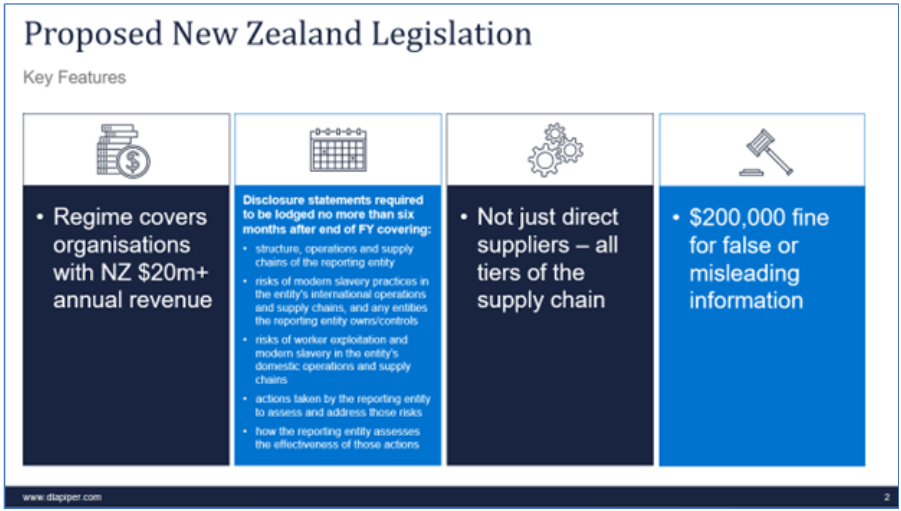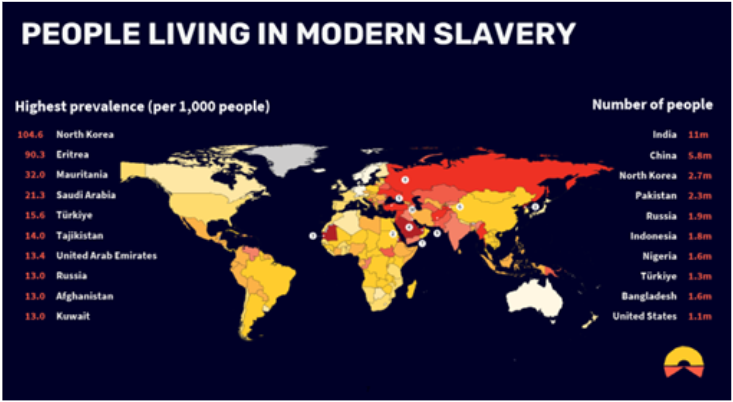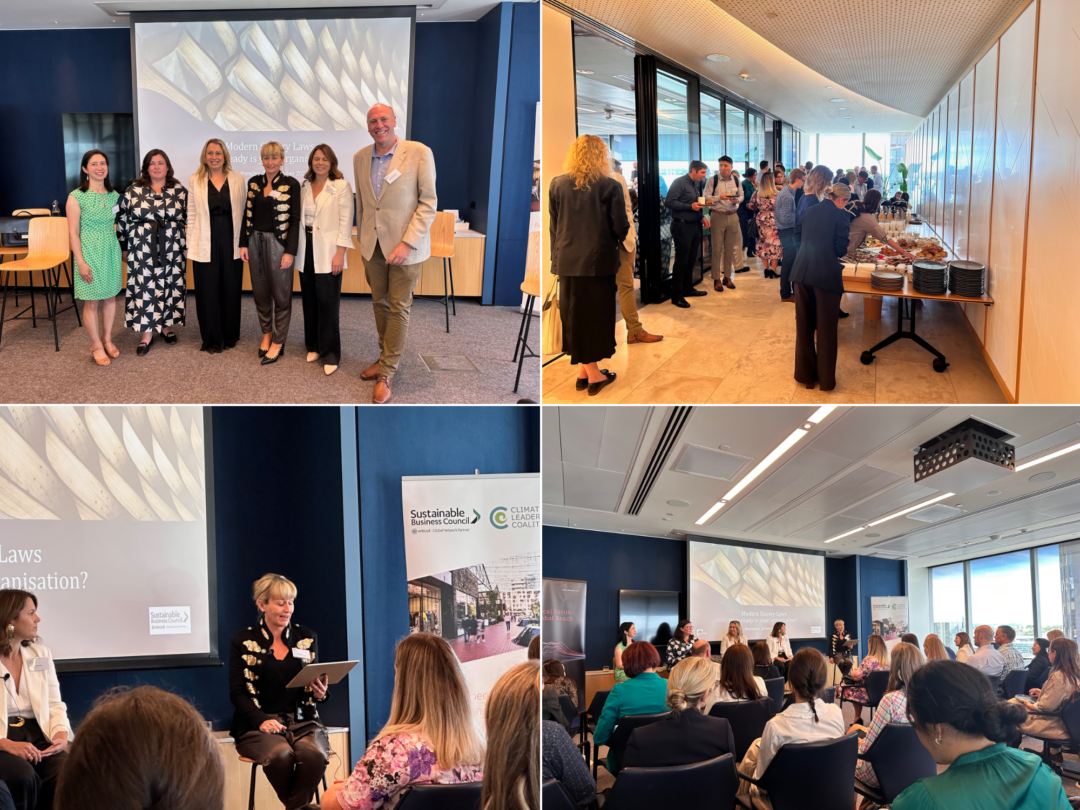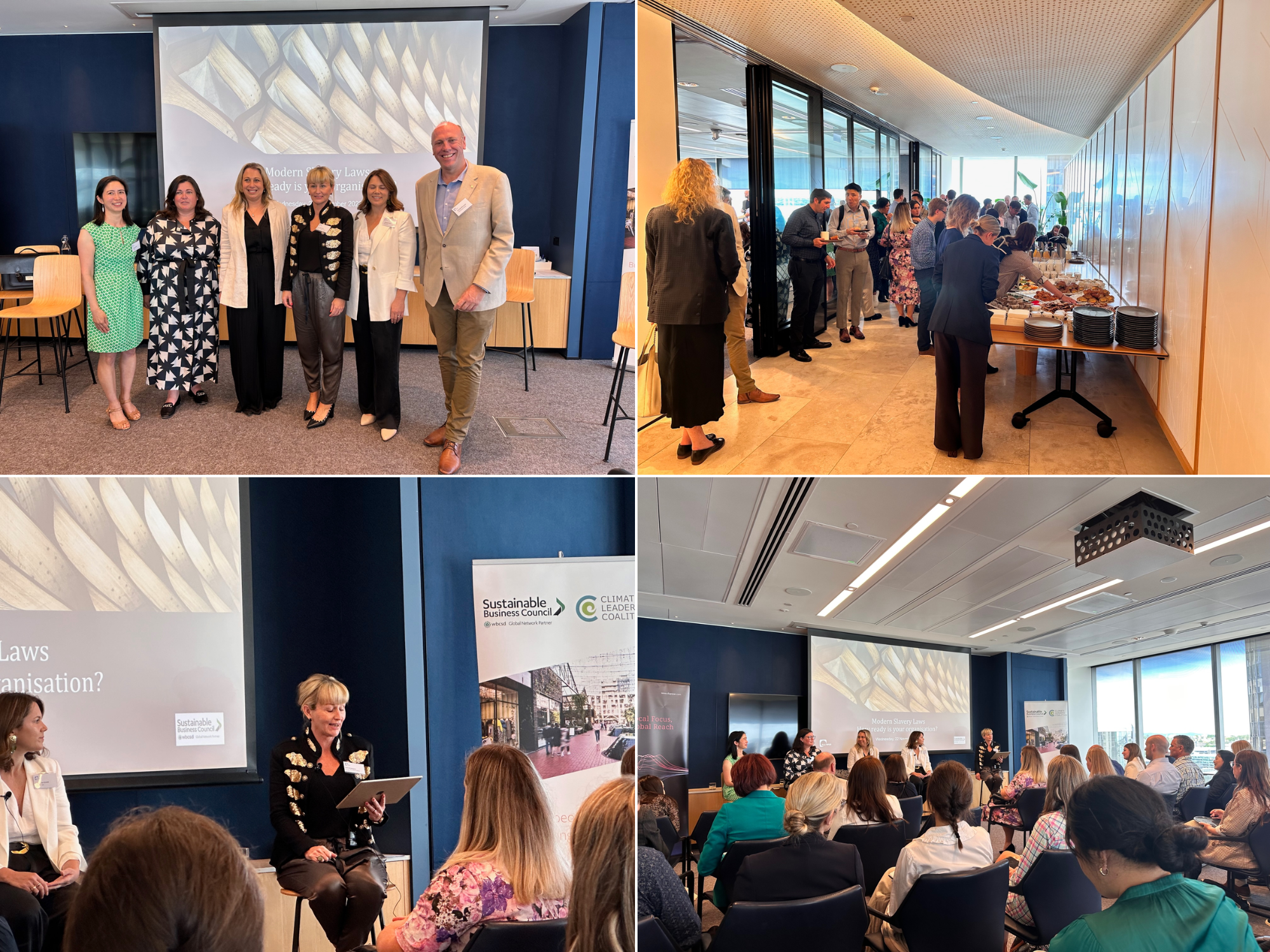8, 10, [??], 8,000 – What’s the missing number?
The answer is 77. If you answered correctly, you must have been among the 90+ business leaders who joined me at our recent deep dive on Modern Slavery, which SBC co-hosted with our friends at DLA Piper. If you couldn’t attend, let me explain.
A new World Vision report claims a staggering $8 billion (or 10%) of imports to Aotearoa every year are linked to modern slavery, meaning Kiwis are spending up to $77 a week on goods linked to modern slavery – this number has doubled since 2021.
To quote SBC’s chair Gareth Marriot, “Modern Slavery is not something that just happens somewhere else in the world – it’s happening right here in our own backyard”. International human rights group Walk Free estimate 8,000 people are living in modern slavery conditions in Aotearoa and 41,000 in Australia”. MBIE has identified 51 victims of trafficking across the motu to date.

Proposed modern slavery legislation was met with widespread support amongst the business community. While we wait to see how the newly formed government will take the proposed legislation forward, many businesses are looking to other countries and our trading partners (such as UK, Australia and the EU) who are ahead of NZ on legislation to see:
- What good looks like (now and in the future)
- Lessons we can learn from and pitfalls we can avoid
- Most importantly, the practical steps businesses can take now to get ready for proposed legislation.

At the 22 November event, it was great to hear insights from Serena Grant (Walk Free), Kimberly Randle (Fair Supply), Sum Green (Westpac New Zealand), Natalie Caton, and Laura Scampion (DLA Piper). Here are my key takeouts:
- The importance of targeted due diligence. There is ‘no one-size-fits-all’ solution. It is all about looking at the material risk and working with high-risk suppliers to make effective changes and meaningful impact.
- Modern Slavery risks are typically found between tiers 2-4 of supply chains. It is concerning therefore to learn that NZ businesses have limited visibility of their ‘suppliers’ suppliers’, and therefore where their products are coming from.
- Disclosure requirements alone are not enough – due diligence is the best practice standard we need to work towards.
- Mandatory due diligence legislation can create a level playing field for business by supporting a consistent approach and common practice.
- Robust risk assessment, materiality and prioritisation are critical in making the process manageable, and to inform the right actions on issues that matter most.
- Take stock and build on what is already in place. Modern Slavery (and broader Human Rights) risk assessments and management responses can be hot-wired into existing business management systems and processes already in place such as sustainable procurement practices).
- Due diligence can offer businesses a point of difference, providing competitive advantage by meeting growing expectations of investors and customers – especially with countries and trading partners where such practice is becoming normalised.
- Opportunities for industry collaboration to work with common ‘high risk’ suppliers or issues and to help avoid supplier survey fatigue, reducing reporting burden for SMEs and improving availability and access to common datasets. Care must be exercised with regard to competition (e.g. prevent ‘collective boycotts’) and privacy law issues.
- Join the dots for better outcomes – supply chain due diligence can drive integrated for environmental and social issues can and should work hand in hand
What is SBC doing and how to get involved
SBC’s recently launched report (Thriving People – Strengthening the ‘S’ in ESG) showed that business has an critical opportunity to set an aspiration to progress social equity, by taking new action around supply chains. Specifically, businesses need to take an end-to-end view of the supply chain, applying due diligence for human rights and responding to regulatory shifts (such as modern slavery regulation), as well as acting as an advocate and catalyst for positive social impact.
We will be bringing together a small group of interested members together in the new year to set out how we can build momentum and collective impact. Let me know if you are interested in participating or would like to know more information.
Finally, SBC is refreshing its member commitments next year to reflect what current and future sustainability best practice looks like, in line with the World Business Council for Sustainable Development’s (WBCSD) new commitments. This includes declaring support for:
UN Guiding Principles on Business and Human Rights by having in place a policy to respect human rights and a human rights due diligence process.
This new requirement would be phased in over a two year period commencing in 2026. As part of this process we will be developing practical ‘how to’ guidance on Human Right Due Diligence to include in a new ESG toolkit by mid-year 2024.


